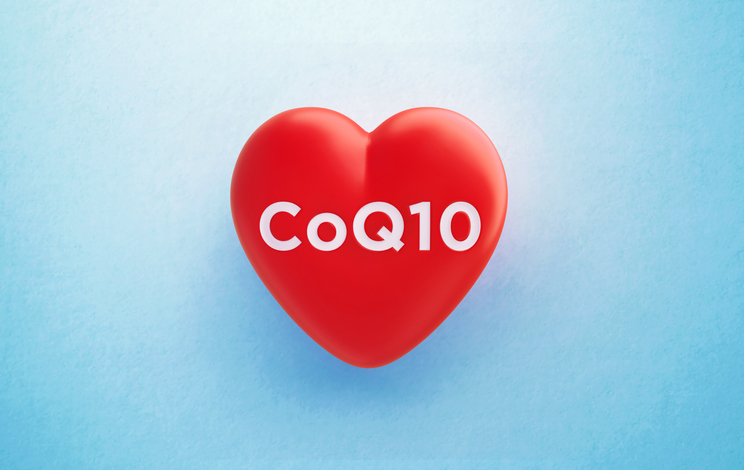Heart Health: Coenzyme Q10

This is the final post in our four-part series on heart health. In the last post you learned about dietary fats that promote inflammation in the body and tips for replacing them with more heart-healthy options.
Today you will learn about Coenzyme Q10 (CoQ10), a naturally occurring antioxidant found in almost every cell membrane of your body, with highest concentrations in your heart, liver, and kidneys.
The main job of CoQ10 is to help mitochondria—known as the powerhouses of the cell—turn food into energy that the cell can use.
The Neutralizing Power of CoQ10
As an antioxidant, CoQ10 also protects the body’s cells by neutralizing free radical damage and reducing oxidative stress. Like rust damage to a car, when left uncontrolled, free radicals can harm the cells of your body.
According to the Mayo Clinic, research on CoQ10 shows the following potential antioxidant benefits:
- Improvement in symptoms of congestive heart failure, including decreased blood pressure.
- Reduced risk of repeat heart attacks.
- Decrease in low-density lipoprotein (LDL) cholesterol and total cholesterol levels in people with diabetes.
- Relief from muscle weakness and pain sometimes associated with taking cholesterol-lowering medications (statins).
- Prevention of cardiovascular disease.
- Decreased frequency of migraine headaches.
- Improvement in physical performance due to the role of CoQ10 in energy production.
Interestingly, certain health conditions like heart disease, brain disorders, diabetes, and cancer, have been linked to low levels of CoQ10. However, it’s not clear whether low levels of CoQ10 cause these diseases or are a result of them.
It’s also important to note that CoQ10 production begins to fall in the body by age 40. And in diseases like congestive heart failure it may fall even further.
Supplementing with CoQ10
Although CoQ10 can be found in foods like whole grains, fish, organ meats, and nuts, the amount isn’t enough to significantly increase CoQ10 levels in your body.
When shopping for a CoQ10 supplement at Heinen’s, look for the form labeled “ubiquinol”. It offers greater bioavailability and absorption. The Heinen’s brand of CoQ10 is an affordable, high-quality choice!
Another important thing to remember about CoQ10 is that it’s fat-soluble. This means your body will absorb it best when taken with a meal.
Food for Thought …
Although CoQ10 appears to be safe for most people, please check with your healthcare provider before beginning this or any new supplement. Also take caution if you are on blood thinning medications, as CoQ10 could make them less effective.
Supplements aside, adding antioxidant-rich foods to your meals can naturally reduce free radical damage in your body. Foods on your Fx-100 List can help! These include: herbs and spices, vegetables, leafy greens, and fruit. Check out this week’s featured recipe for Superfood Zoodles. It makes a delicious heart-healthy side dish for your next summer barbecue!
Interesting in working with one of our Registered Dietitians? Click here to learn more or to schedule an appointment.


